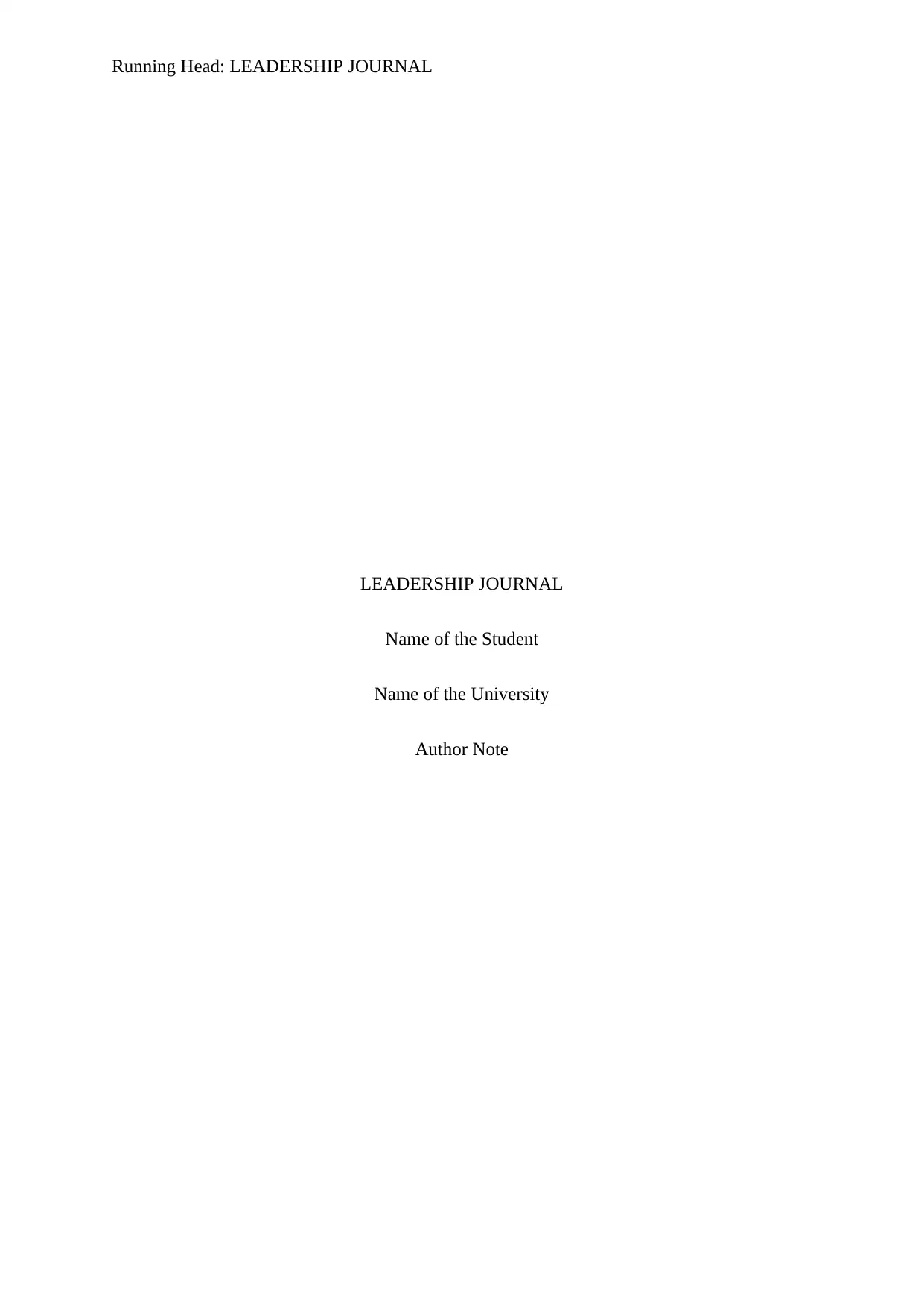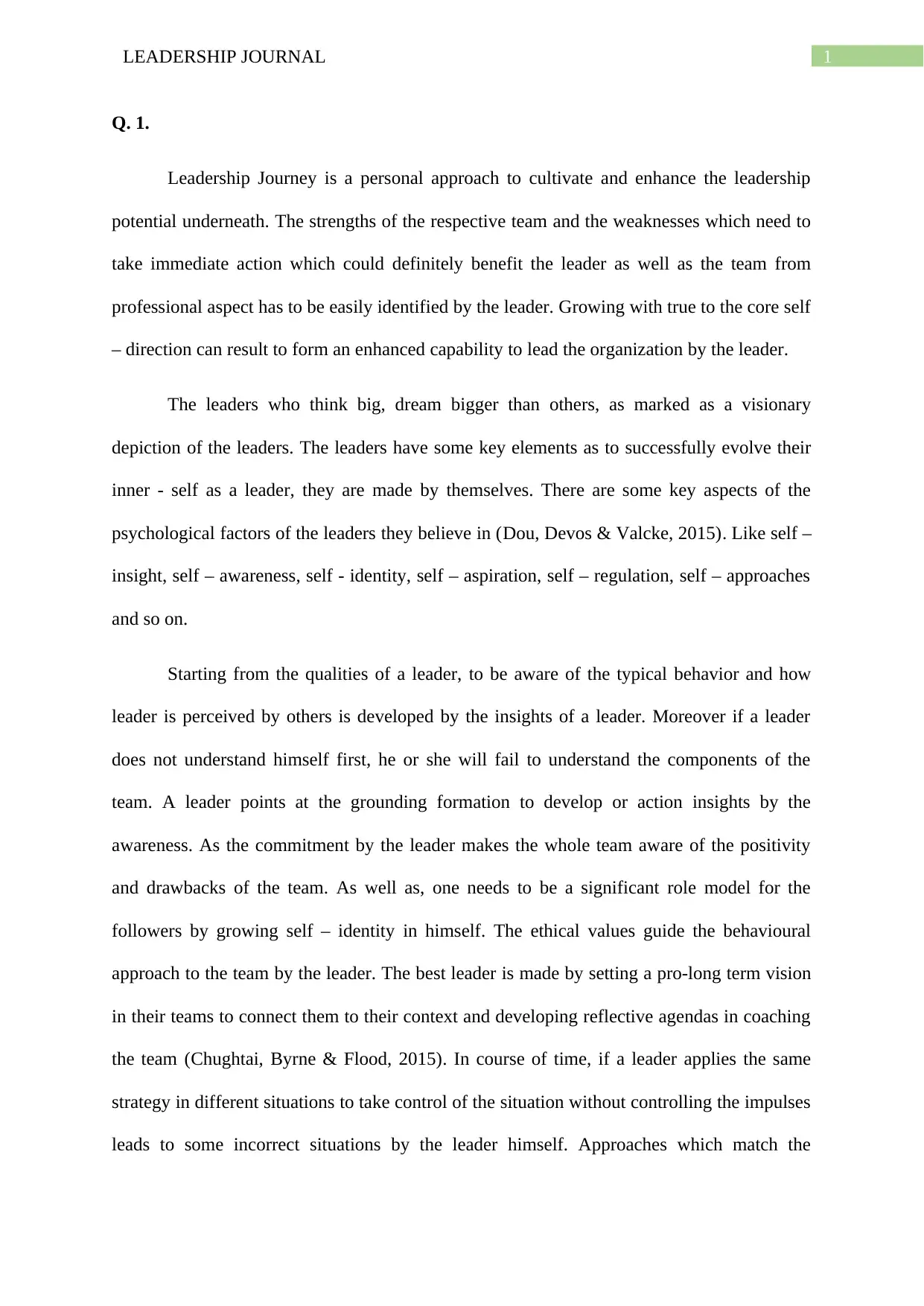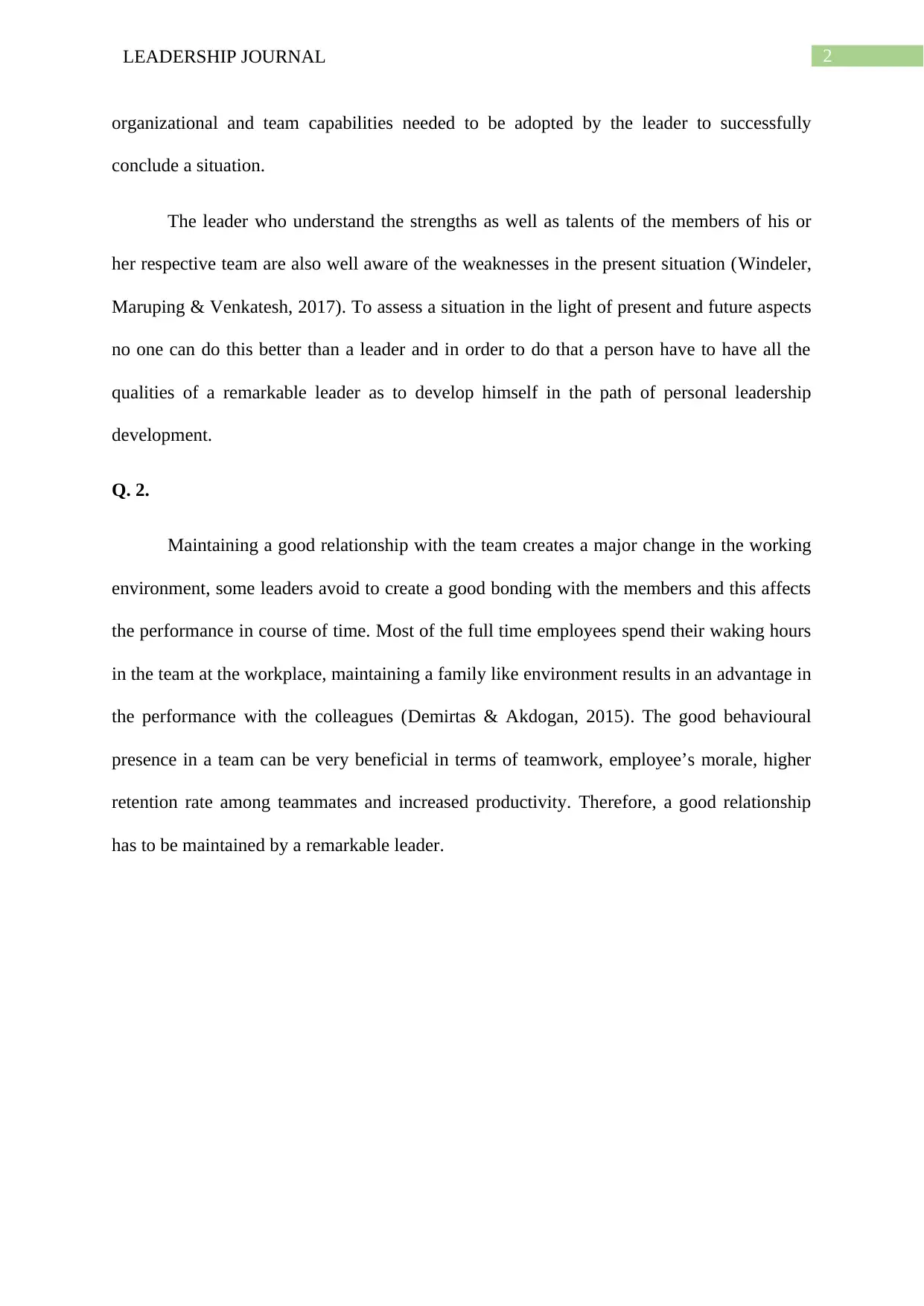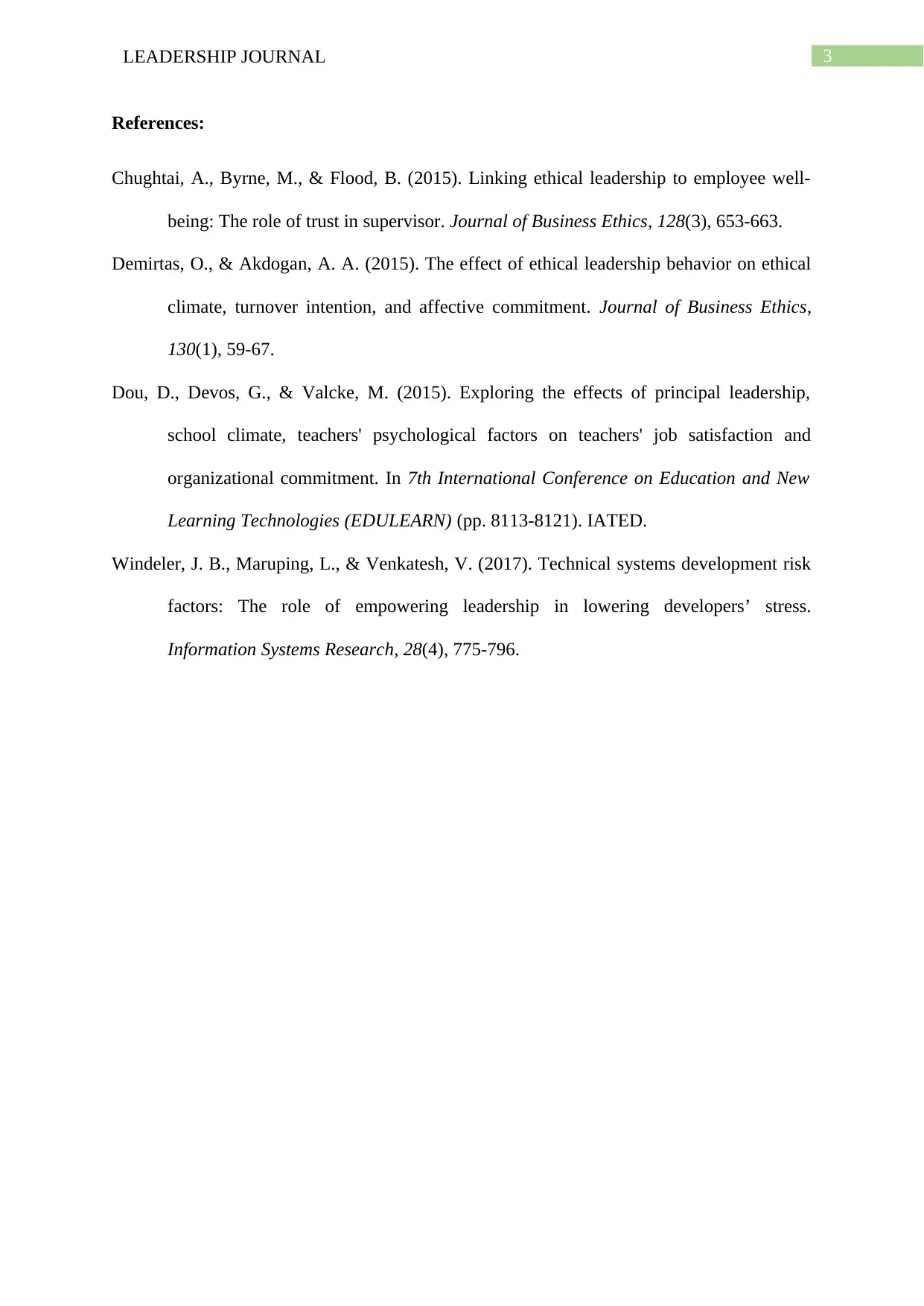Leadership Journal: Personal Leadership Development Journey
VerifiedAdded on 2022/10/12
|4
|834
|10
Journal and Reflective Writing
AI Summary
This leadership journal assignment delves into the student's personal leadership journey, emphasizing the cultivation of leadership potential through self-awareness and strategic thinking. The assignment requires reflection on the student's behaviors and application of leadership skills discussed in the course. The student analyzes their ability to 'think big' and apply strategic thinking in various situations. The journal also explores the importance of maintaining positive relationships within a team to enhance performance and overall work environment. The student references key elements of leadership, including self-insight, self-awareness, and ethical values, and highlights the significance of being a role model and establishing a long-term vision for the team. The assignment underscores the importance of understanding team members' strengths and weaknesses and adapting approaches to match organizational and team capabilities. The references cited support the concepts of ethical leadership, employee well-being, and the impact of leadership on team dynamics and productivity.
1 out of 4











![[object Object]](/_next/static/media/star-bottom.7253800d.svg)